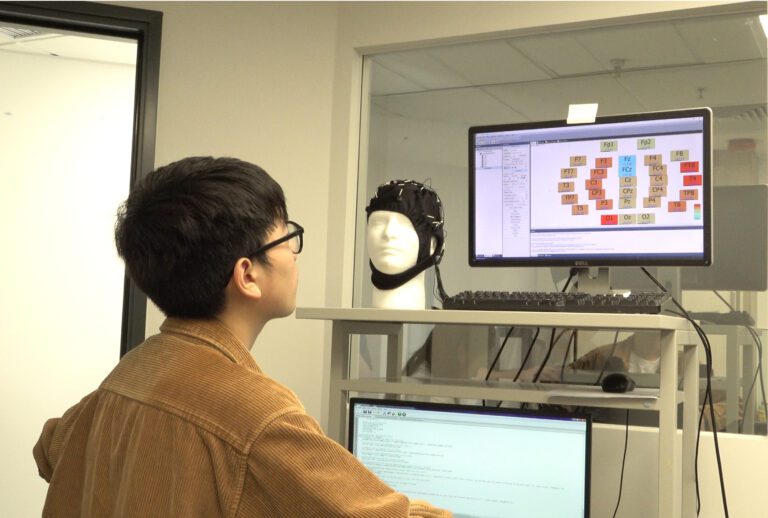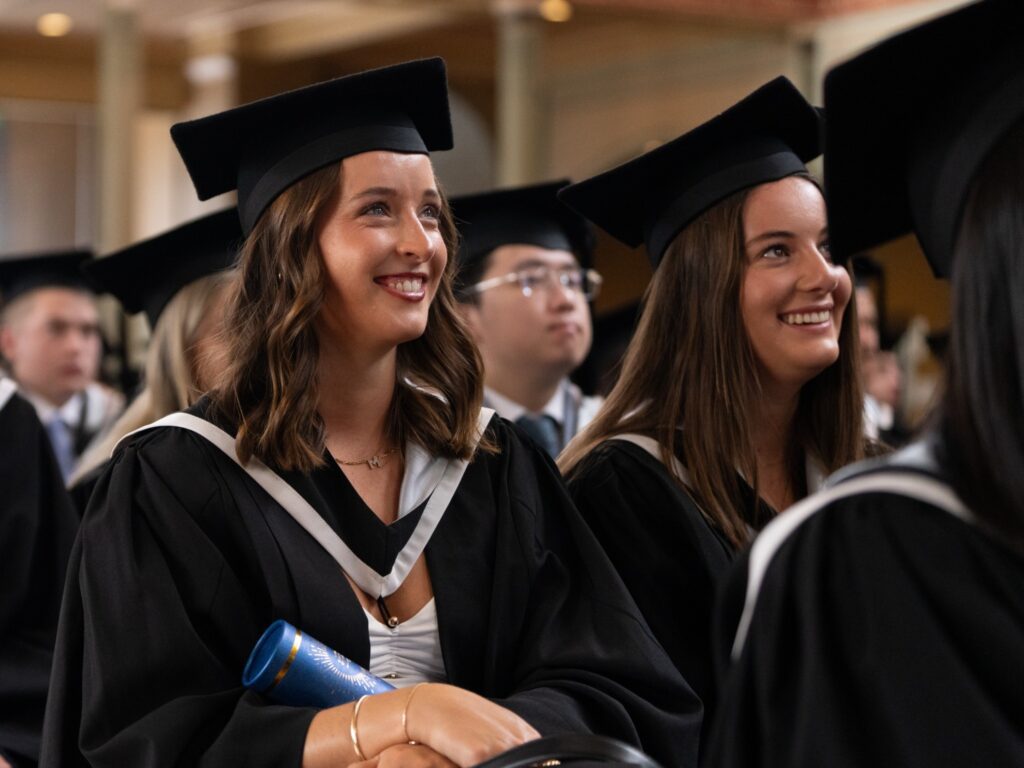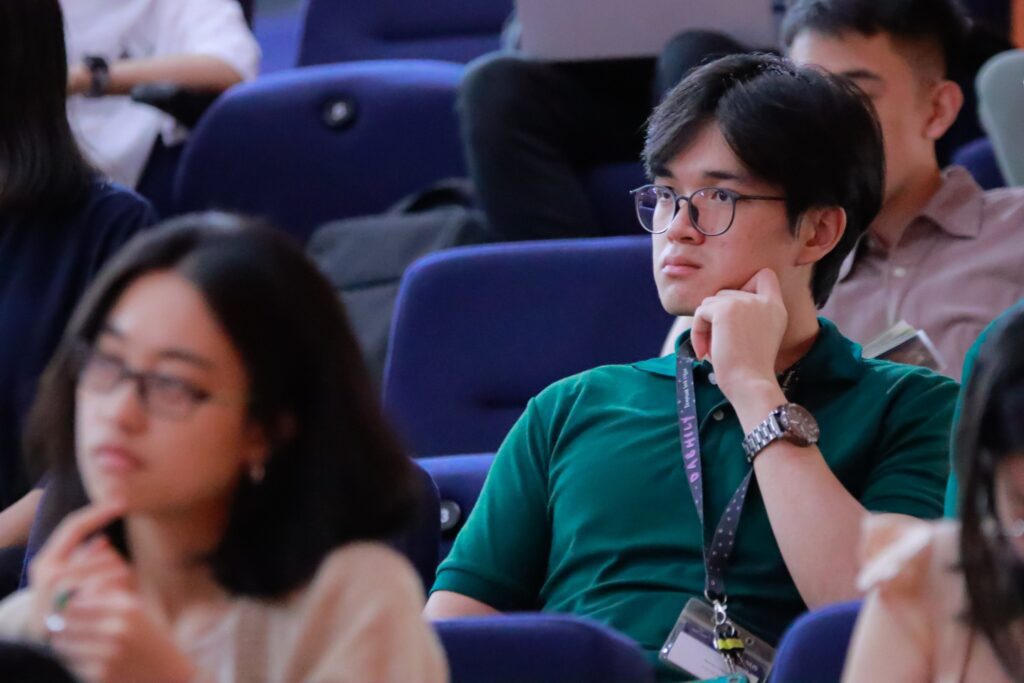
Nine out of 10 employers rely on employees who speak a language other than English. Bilinguals and multilinguals also command a higher salary, earning 5% to 20% more per hour. While these figures show the possible high return on investment for mastering languages, they remain only small facet of its substantial suite of benefits.
Perhaps the most profound use of this discipline — understanding language, its mechanics, and its applications – lies in its power to unite the world. From the Rosetta Stone to today’s UN translators, they have served as crucial conduits for understanding and cooperation.
Those aiming to harness the benefits of this discipline would do well to advance their knowledge and skills at a top university in one of the most linguistically diverse areas in the world: Asia Pacific. The region is home to over 3,000 distinct languages, seemingly countless experts, and many institutions with rigorous programmes in linguistics, language studies, and translation.
City University of Hong Kong
As the #1 most international university in the world, it is only fitting that City University of Hong Kong offers programmes dedicated to mastering and understanding language and linguistics. Its Department of Linguistics and Translation (LT), ranked #38 for Linguistics in QS World University Rankings by Subject (2025), is one of the region’s best places to explore our fascinating language wonderland as well as this crucial discipline for those who seek a true understanding of the world.
“At LT, we provide the most comprehensive, applicable, and dynamically growing programmes of all language-related studies, for academic pursuit as well as professional development,” says head of the department, Professor Niels O. Schiller.
The department offers undergraduate and postgraduate programmes in general linguistics, language technology, intelligent linguistic applications, and translation and interpretation studies. These programmes are as effective as they are forward-looking, meeting the United Nations’ Sustainable Development Goals (SDGs) four and 10 – providing quality education for everyone and shaping a more reasonable language infrastructure, respectively.
A highlight is the Master of Arts in Language Studies. It trains you in advanced analytical and research skills to address complex language conundrums in sectors like education, technology, and society, both at a local and global scale. To specialise, choose from one of the four streams: explore the foundation of language and how it operates through General Linguistics, analyse language using corpora and datasets through Corpus and Empirical Linguistics, cover teaching and learning language scientifically and effectively through Pedagogical Linguistics, or look into how people communicate orally or textually through Translation and Interpretation.
Apply to the Department of Linguistics and Translation at City University of Hong Kong today.

The School of Languages and Linguistics offers courses in English as a Second Language (ESL), Linguistics, Applied Linguistics, a range of European languages (including French and Spanish), and more. Source: The University of Melbourne/Facebook
The University of Melbourne
The University of Melbourne’s School of Languages and Linguistics offers a world-class education – it is ranked #1 in Australia for both Modern Languages and Linguistics (QS World University Rankings 2024). At Australia’s leading university (ranked #13 in the world), students are preparing for a world changing fast by asking crucial questions about our world. They are evolving into bold, critical thinkers and strong communicators who can help us navigate global challenges and interrogate what it means to be human today.
At the postgraduate level, this means understanding how and why language functions as it does. Through the Master of Applied Linguistics (MAppLing), you get to do just that. The two-year programme enhances your expertise with a research project, while providing you with a competitive edge in different areas such as language teaching, assessment, and programme evaluation in English and other languages.
If you are interested in linguistic research, the school collaborates in a wide range of areas, including language teaching, learning, and assessment with international partners around the world. Supported by the school’s research expertise, you could potentially also participate in projects to gain hands-on experience and to contribute to meaningful advancements in linguistics and language studies.
Further expanding its global reach, the University of Melbourne offers an exchange programme with 200 partners in over 35 countries. Whether semester-long or only a few weeks, you’ll gain invaluable global exposure while you study and live overseas. For an easy start, use the university’s Melbourne Global Mobility resources for tips that will guide your journey.

The Department of English, Linguistics and Theatre Studies at National University of Singapore is one of the oldest departments in the university. Source: NUS Faculty of Arts and Social Sciences/Facebook
National University of Singapore
As Singapore’s flagship university and one of Asia’s best, the National University of Singapore (NUS) offers a global approach to education, research and entrepreneurship, with a focus on Asian perspectives and expertise.
The Department of English, Linguistics and Theatre Studies is a leading academic department dedicated to studying English language and linguistics, English literature, as well as theatre and performance studies. With a rich history and a commitment to excellence, it offers a vibrant learning environment for students interested in exploring the diverse field of linguistics.
At the heart of this department is its distinguished faculty, renowned scholars and researchers at the forefront of linguistic inquiry. Dr. Nala Lee, for example, is passionate about the topic of language endangerment. The NUS alumna and Assistant Professor of Linguistics is Peranakan Chinese by birth, and her heritage language is Baba Malay, which has been critically endangered since the 1980s.
The English Language and Linguistics programme engages in the formal study of language structures and the qualitative study of language in its social context. Students gain familiarity with the questions and methodologies of both areas — learning about language, the most distinctive human activities, and how to understand it.
For graduate students, the department offers rigorous master’s and PhD programmes, equipping them with advanced training and research skills to pursue careers in academia, research, or industry.
*Some of the institutions featured in this article are commercial partners of Study International










